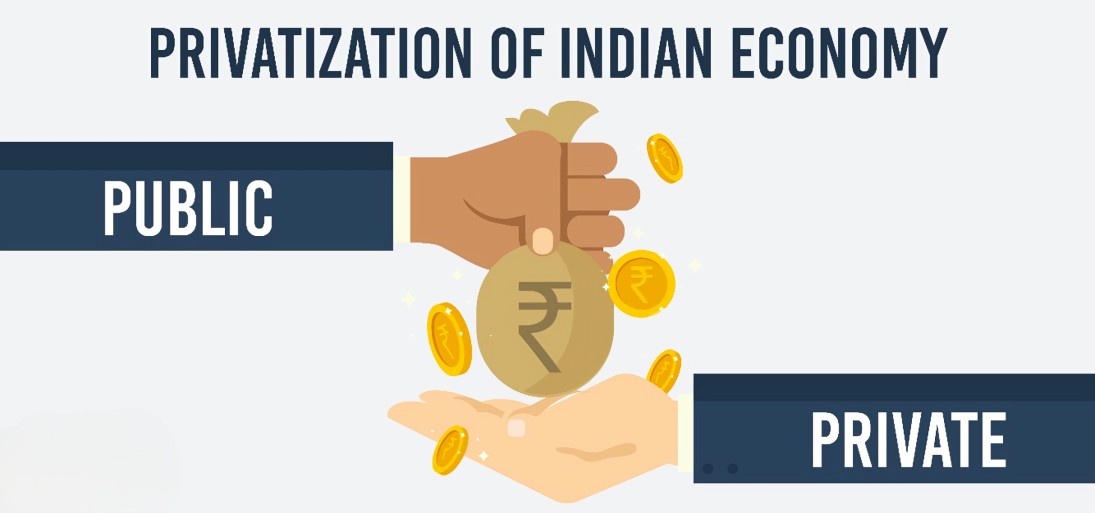PRIVATIZATION


News:
The case of the Rashtriya Ispat Nigam Limited (RINL), Visakhapatnam Steel Plant (VSP), which can serve as a basis to understand the pros and cons of privatization in general, particularly in the context of public sector undertakings (PSUs) like VSP.
Pros of Privatization:
Improved Efficiency:
Private companies are often driven by profit motives, which lead to more efficient management practices. Unlike state-run companies, private entities tend to have streamlined decision-making processes, reduced bureaucratic delays, and a focus on profitability.In the case of VSP, the plant is currently incurring heavy losses, partly due to inefficiencies such as not being allocated captive mines for iron ore and coal. A private player might be able to address these inefficiencies more effectively.
Financial Viability:
Privatization could prevent further financial stress on the government, which is currently not extending financial support to the plant.
VSP is currently burdened by accumulated loans amounting to ₹18,500 crore and spends an additional ₹4,000 crore annually to procure iron ore. A private entity could bring in fresh capital, reduce the debt burden, and improve the plant’s financial health.
Potential for Expansion:
The VSP’s capacity can be expanded up to 20 million tonnes of steel production. Privatization could bring in the required investment to maximize production and utilize its modern technology and strategic location near major ports for growth.
With access to private funding, VSP could further upgrade its technology and increase output to meet market demands.
Real Estate Value:
Private companies are often skilled in monetizing underutilized assets such as real estate, which could generate additional revenue for the plant. VSP sits on a huge land bank of about 20,000 acres with a market value of approximately ₹1 lakh crore.
Cons of Privatization:
Loss of Public Sector Status:
- Privatization may lead to resentment and protests from the local community and employees, who see the plant as a public asset that serves the interest of the state and the nation.
- The VSP has an emotive connection with the people of Andhra Pradesh, as it was born out of a people’s movement in the 1960s. The slogan “Visakha Ukku Andhrula Hakku” (Visakha Steel: The right of the people of Andhra) highlights the cultural and political significance of the plant.
Job Losses and Labor Concerns:
- One of the biggest fears of privatization is job losses.
- VSP currently employs about 12,600 permanent employees and 14,000 casual workers. Privatization might lead to workforce downsizing or reduced benefits for employees, as private companies typically seek to optimize costs.
Exploitation of Natural Resources:
- While the VSP lacks a captive mine, privatization may not guarantee that the new owners will prioritize long-term sustainability over short-term profits. There is a risk that private companies may exploit natural resources without sufficient regard for environmental concerns or future generations.